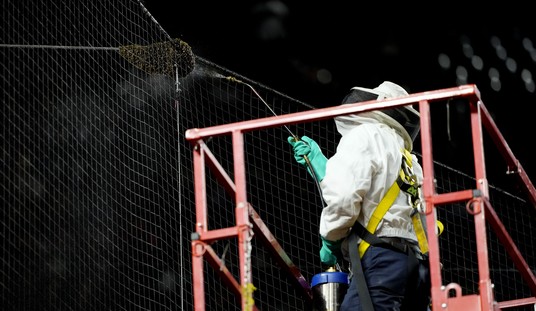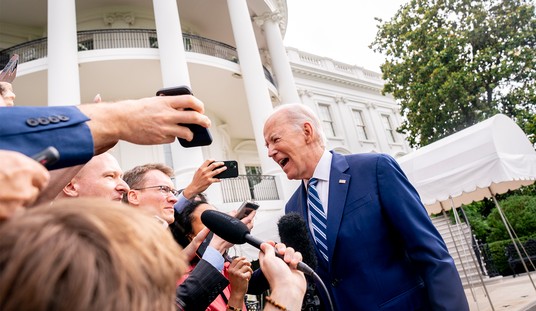This month’s successful kill/capture mission in Abbottabad, Pakistan, which resulted in the death of the World’s Most Wanted Terrorist and in the recovery of a treasure trove of intelligence (and of pornography – gotta love those radical fundamentalists’ aversion to hypocrisy!) has naturally increased national and media interest in the elite special operations professionals who carried out this operation.
While the information being reported by various media outlets and individuals has often missed the accuracy bulls-eye by quite a bit (yet again demonstrating that life imitates the Onion), enough accurate-ish information has apparently been revealed to the public by the usual suspects – the administration and those members of Congress who hold security clearances because of the voters’ actions rather than for any personal character qualities they may actually possess – that some units within, and affiliated with, JSOC are reportedly being forced to consider adapting their Tactics, Techniques, and Procedures (TTPs) — not to mention the fact that some operators are now concerned for the safety of their families (more on this later).
Joint Special Operations Command is the umbrella under which “black SOF” falls. This does not mean that every individual within the command is a secret agent or Chuck Norris-like commando; however, it does mean three things: (1) the organization, its people, and those it aligns itself with for mission and intelligence purposes conduct operations which are of particular importance to the national security of the United States, and therefore are of particular sensitivity; (2) its members utilize specific procedures and equipment which are highly specific to the types of missions they undertake (and which can therefore be outside the norm of conventional military procedures and equipment, or even of those utilized by “white SOF” units); and (3) due to the former two points, the equipment used by JSOC units and those with which they work, the TTPs employed by them, and the identities of the operators themselves are sensitive to excessive sunlight. In other words, of all the military units the United States has, JSOC is perhaps the one most damaged by public attention being paid to its equipment, its TTPs, and its personnel.
There’s a very good reason why the bin Laden raid is one of maybe a half-dozen JSOC operations that the public has heard about over the last decade. That reason certainly isn’t that only three to six of these missions have been carried out since then; JSOC units boast one of the highest-tempo combat operations schedules when deployed, and inarguably the highest-tempo training schedule when at home. Direct action operations, and other special operations of various durations and purposes, are quite literally a way of life for the operators in these special mission units, and while some aspects of the Abbottabad raid may have been unique, the concept itself – a direct action mission featuring an air assault to the objective, infiltration, dealing with a high-value target (HVT), site exploitation for intel, and exfiltration – is as routine to these SMUs in terms of sheer repetition as most folks’ drive to the office each day.
The reason the public isn’t briefed daily on JSOC’s activities is because of the importance of confidentiality to their mission and to their TTPs. When it comes to direct action missions against HVTs, the team is dependent on the target being there, and on there being a reasonable lack of knowledge (a) that they’re coming, and (b) what the infil/exfil plan is. If these are widely publicized, then effectiveness is significantly reduced. As Marc Ambinder writes today in the National Journal:
JSOC’s existence as the umbrella command for America’s special missions units and standing counter-terrorism task forces is classified, as is basic information about its structure. Protecting JSOC’s secrecy is expensive. For many, it is vital to national security. But its veil of secrecy may be untenable in an age where every explosion is reported within minutes of it occurring.
Inevitably, some of the information, like the writings in bin Laden’s diary, will become public. Col. Roland Guidry (ret.), one of JSOC’s founding members and a legend in special operations forces, said he blames President Obama and his aides for the sunlight bathing the SEALs.
“The pre-mission Operational Security was superb, but the post-mission OPSEC stinks,” he said. “When all the hullabaloo settles down, JSOC and [the SEALs] will have to get back to business as usual, keeping the troops operationally ready and getting set for the next mission; the visibility the administration has allowed to be focused on JSOC and [the SEALs] will make their job now more difficult.”
Guidry said that the “administration’s bragging” about details like the existence of the bin Laden courier network and efforts to eavesdrop on cell phones would encourage the enemy to adapt by changing their cell phones, e-mail addresses, web sites, safe houses, and couriers. He also thinks the administration should not have disclosed precisely what types of equipment it found in bin Laden’s compound, such as bin Laden’s use to thumb drives to communicate.
“Why did the administration not respond like we were trained to do 30 years ago in early JSOC by uttering two simple words: ‘no comment’?” he asked.
The high-profile nature of the target made it virtually impossible not to acknowledge the success of this particular mission or to provide some details regarding how, and by whom, it was accomplished. However, the Obama administration’s tourette’s-like insistence on telling the press whatever version of the operational story they felt like giving at that time or on that day (before they decided not to say anything any more), in tandem with the president’s own insistence on reinforcing his narrative of the “gutsy call” that resulted in bin Laden’s death at fundraisers and through media surrogates, have demonstrated that OPSEC and the safety of America’s premier special operators and their families are far less important to the Commander in Chief and his administration than taking so many victory laps and spiking the football with such frequency and repetition that it’s a wonder Obama himself hasn’t coughed up a black lung yet while simultaneously deflating the prop football he’s been handed for this purpose.
The concern here is more serious than it may seem at first blush. It is not one of a stagnant organization being forced to shed its covering of moss and actually (perish the thought!) embrace change of any kind. The units of Joint Special Operations Command have constantly adapted their TTPs to battlefield circumstances, having arguably done so more in the last decade than any other US military organization. However, adapting to a changing battlefield environment and a changing enemy is one thing; being forced to adapt because members of your own government – particularly those who see one successful mission as a silver bullet to be used in a reelection campaign, and to enact a comprehensive and completely unrelated agenda – couldn’t keep their traps shut about sensitive information. As Ambinder notes, sensitive information of this type has already been released by the administration:
When The Washington Post reported that President Obama noted that the loss of a “$15 million helicopter” was worth the capture of bin Laden, the paper was revealing more than it realized: normal Blackhawk helicopters cost around $5 million. Terrorists and potential adversaries like China now have a dollar figure to help them figure out precisely how the Blackhawk was modified for its stealth mission.
However, whatever adaptations there are that are both feasible and necessary will be made. The far greater concern for the professionals at JSOC, as with any other soldier, sailor, airman, and Marine, is the safety of their families – something which those who participated in the Abbottabad raid have understandably expressed concern about. It’s one thing to have a target on your own back, as any deployed American servicemember does (and as many of us living our naive, peaceful lives at home do, as well, despite the sense of security and normalcy which we’ve allowed to take over our collective consciousness); it’s altogether another to know that your spouse, children, parents, and other loved ones may not only be targeted by murderers bent on getting revenge for a military operation, but that they may be targeted while you are deployed and conducting combat operations elsewhere, with no ability to protect them from danger.
Hopefully, neither the administration nor the media will publish personal information on the members of JSOC’s units which could result in harm coming to them or, worse, their families. Regardless, it’s important that administration, its surrogates, and the media wind down their constant gabbing (whether accurate or not) about JSOC and its operations for national and personal security reasons, as well as for the sake of the missions the units under this command are tasked with accomplishing. It is simply ridiculous to claim, as unnamed officials cited by Ambinder supposedly have, that “the administration’s preparations for the raid were so secret that it could not simultaneously develop a plan to deal with the desire for information once the killing was revealed.” Such a claim reveals a stunning lack of touch with reality, particularly on the part of an administration which was swept into office in no small part because of its ability to recognize and utilize 21st century socially-based communication habits and tools.
Ambinder further cites “a senior administration official who is concerned about the release of public information” as recognizing this fact, albeit belatedly:
“It’s fair to say that this is one of the most extraordinary accomplishments in the history of the intelligence community and the military. They deserve enormous credit…And a lot of these agencies, in particular [National Geospatial-Intelligence Agency] and [National Security Agency], almost never receive the praise they deserve. But, yes, after an important week spent explaining to the American people what happened and why it matters to them, it’s time for all of us to go back to keeping the conversations about these topics squarely in the proper classified channels.”
Additionally, he writes:
Vice Adm. William McRaven, JSOC’s commanding general, expected a degree of exposure before the raid but hopes that his command’s 15 minutes of fame are over soon, two military officials said. …Some senior JSOC officers are prepared to deal with a future that includes more openness about their operations.
While JSOC’s next missions won’t receive even a fraction of the level of media attention or administration blabbing as the Abbottabad raid did, their operations – TTPs, equipment, etc. – may be forced to change as a result of the sunlight shone on them in the wake of this raid and the administration’s unwillingness to be more tight-lipped about its circumstances. It wouldn’t be the least bit surprising if some change on the part of the enemy’s tactics comes about as a result of these events, which in turn results in a lower mission success rate and (though hopefully not) a higher operator casualty rate. It also wouldn’t be surprising if JSOC ended up adapting to this flurry of press in part by being a bit more open about its operations, its units, and its results. The latter, at least, has aspects which may be at least arguably positive. However, the former would be a serious blow to the effectiveness of America’s sharpest direct action and counterterror force – though arguably not as serious as the potential endangerment to the families of America’s servicemembers, as a result of their superiors in government being unable or unwilling to keep their traps shut about classified missions and personnel.














Join the conversation as a VIP Member